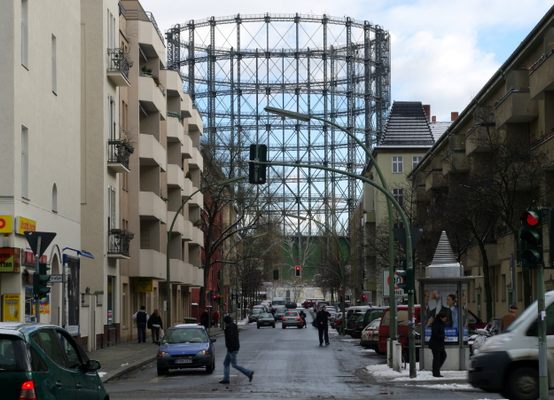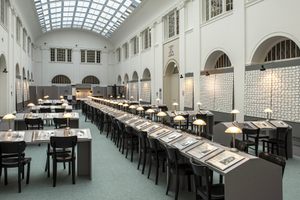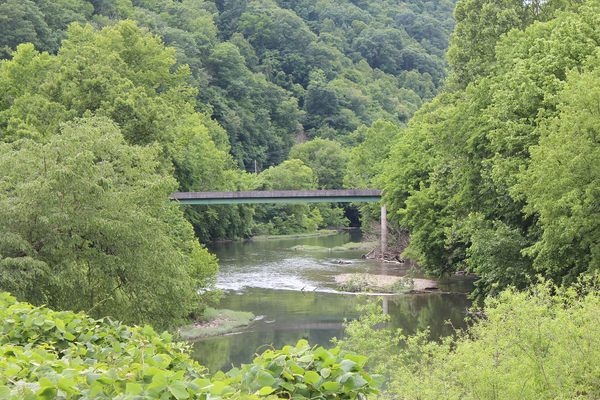About
The skeletons of abandoned gasworks, a throwback to the days when gas was pumped to homes and businesses from massive, above-ground storage tanks, can be found in countless European cities. Few, however, are as integrated into the urban landscape as the Schöneberg gas storage and supply tank in Berlin, better known as the Gasometer.
Completed in 1910, the structure survived both world wars and the Cold War that followed, and was only decommissioned in 1995. In addition to the still-existent steel cylinder, it also consisted of a huge, flexible enclosure that could be raised and lowered telescopically to adjust to the volume of gas within. This rising-and-falling apparatus could be seen for miles around, and served as an easy visual indicator of how full the tank was— hence the building's nickname.
The former expandable chamber was built over a pool of standing water, which allowed the gas to remain inert while expanding and contracting. In recent years, the former cistern has been drained, repaired, and retrofitted, and now serves as a high-end event space. As spacious as the interior feels from inside, it's just a small fraction of the full height of the structure, and hardly figures into the building's distinctive silhouette at all.
The remaining tower itself consists of numerous rings—actually circular paths connected by steep metal stairways—which offer access to all parts of the structure. And while other buildings may be taller, the unique transparency of the Gasometer's beam-and-rivet construction offers something truly unique: a 360-degree view of the city, no matter where you are on the structure. (For those who aren't too afraid of heights, the view straight down can be thrilling as well, as the walkways consist entirely of open steel grating.)
Landmarks visible from the Gasometer's middle-to-high levels include the Rathaus Schöneberg (where John F. Kennedy gave his "ich bin ein Berliner" speech), Sporthalle Schöneberg, the Fernsehturm, the Berlin Cathedral, the Fuji-like peak of the Sony Center, and even, far off in the distance, the ruins of Teufelsberg, the former surveillance station. The hours that span sunset are especially sublime, offering a unique perspective of the city's transition from day to night.
Related Tags
Know Before You Go
The structure is closed to the general public but offers guided tours in both German and English to limited groups during the warmer months. The higher levels can experience strong winds, so dress warmly and make sure cameras and other belongings are securely tethered.
Community Contributors
Added By
Published
April 15, 2019

























